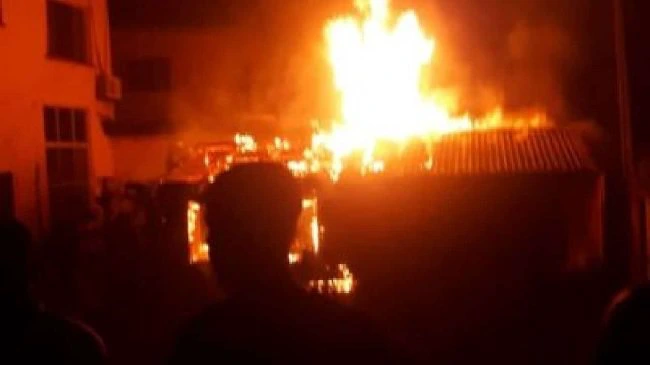In recent times, Kano State has witnessed a series of tragic fire incidents resulting in significant loss of life and property. These events have underscored the critical importance of fire safety awareness and preventive measures within the community.
January 15, 2024: Tudun Wada Tragedy
On this day, a devastating fire engulfed a residence in Tudun Wada, Nassarawa Local Government Area, leading to the deaths of seven family members, including both parents and their five children. The inferno was reportedly triggered by an electrical spark following the restoration of power supply. Eyewitnesses recounted that the family was asleep when the fire broke out, and despite desperate cries for help, neighbors were unable to rescue them in time. The Kano State Fire Service confirmed that the victims succumbed to suffocation caused by the smoke.
May 15, 2024: Gezawa Mosque Attack
In another harrowing incident, six individuals lost their lives during an attack on a mosque in Gadan village, Gezawa Local Government Area. The assailant, identified as 38-year-old Shafi’u Abubakar, allegedly used petrol to set the mosque ablaze during dawn prayers, resulting in injuries to 24 worshippers, including 20 men and four children. The Kano State Police Command indicated that the motive behind the attack was linked to a family dispute over inheritance. The suspect was apprehended, and investigations were ongoing at the time.
May 13, 2024: Quarterly Fire Service Report
Between January and March 2024, the Kano State Fire Service recorded 222 fire incidents across various parts of the state, affecting residential houses, shops, and fuel stations. These incidents resulted in 16 fatalities, while 43 individuals were rescued. The estimated property loss was valued at ₦176 million, with properties worth ₦332 million saved due to prompt response efforts. The service attributed the majority of these fires to the misuse of electrical appliances and overloading of electrical outlets. Residents were advised to exercise caution, especially by turning off electrical installations and gas burners when not in use, to prevent such tragedies.
December 31, 2024: Annual Fire Service Report
By the end of 2024, the Kano State Fire Service reported a total of 55 fire incidents for the year. Throughout these emergencies, 279 individuals were rescued, and properties worth ₦1.8 billion were salvaged. However, the state also mourned the loss of 201 lives and property damage estimated at ₦756 million. The service responded to 144 emergency calls and addressed 63 false alarms during this period. The public was continually urged to handle fire with care and ensure that electrical appliances were properly managed to mitigate the risk of fire outbreaks.
Community Response and Preventive Measures
In the aftermath of these incidents, there has been a concerted effort by both government agencies and community leaders to enhance fire safety awareness. Educational campaigns have been initiated to inform residents about the dangers of electrical hazards, the importance of proper handling of flammable materials, and the necessity of having functional fire extinguishers in homes and public spaces.
The Kano State Fire Service has also emphasized the importance of timely reporting of fire incidents. Residents are encouraged to promptly alert the fire service in the event of a fire outbreak to ensure swift intervention. Additionally, there is a push for the establishment of more fire stations across the state to reduce response times and enhance the effectiveness of firefighting efforts.
Conclusion
The spate of fire incidents in Kano State throughout 2024 has highlighted the urgent need for increased vigilance and proactive measures to prevent future tragedies. While the efforts of the Kano State Fire Service have been commendable in terms of response and rescue operations, the onus also lies on residents to adopt safe practices and remain alert to potential fire hazards. Through collective responsibility and continuous education, it is hoped that such devastating incidents can be significantly reduced, safeguarding lives an
d properties in the state.


